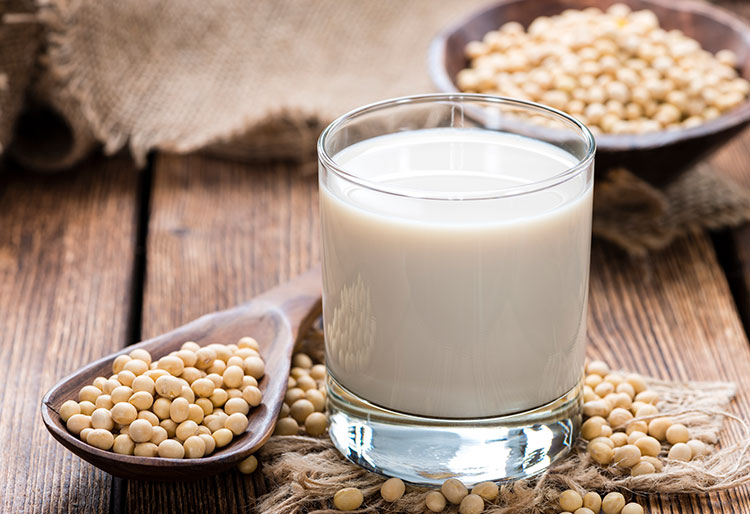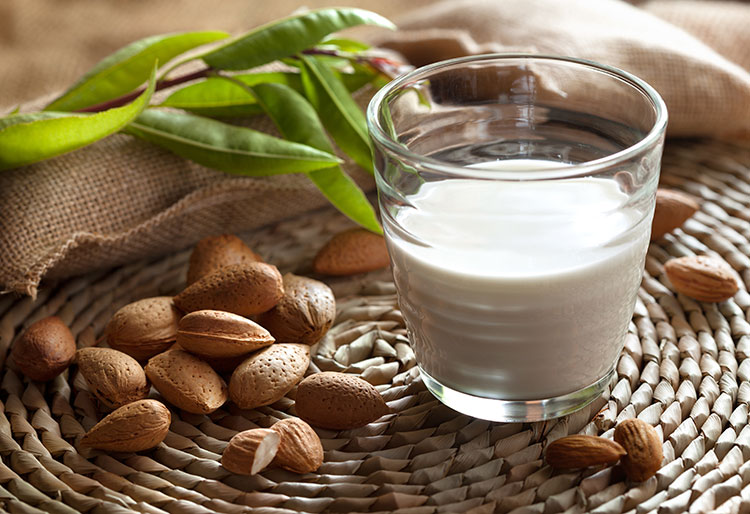Plant-based drinks: types and comparisons
Find out about the main types of plant-base drinks that you can find on the market.
TRIED AND TESTED
Share

Types of plant-based drinks
Some years ago, the range of plant-based drinks was practically reduced to soya milk, but this trend has been growing and, today, the available range is much more extensive. Oat, rice, almond, etc. are just some of these.
But, apart from the number of types of plant-based drinks available, the question is what do they provide us with? Are they a good substitute for real milk? Let’s find out.
The benefits of plant-based drinks
The first thing we need to do is to call them by their name. According to the United Nations Food and Agriculture Organisation (FAO), the term milk can only be applied to “the normal milk secretion from milking animals obtained through one or more milking without any type of addition or extraction, and destined for consumption as liquid milk or subsequent manufacture”.
Having said this, and qualifying that plant-based drinks are not substitutes for milk in any way, let’s see their real nutritional value:
Dicho esto, y matizando que las bebidas vegetales no son, en ningún caso, sustitutas de la leche, veamos cuál es realmente su aporte nutricional:
- Fats: The fat content of plant-based drinks tends to be less than that of milk.
- Sugar: Each brand and type manufactures their product differently;there are types with added sugar and others without, while milk provides sugar in a natural form and sugar cannot be added to it.
- Proteins: The quantity varies considerably depending on the plant. Only soya drink has a similar level of protein to milk, while the rest have much lower quantities.
- Calcium: unless you buy plant-based drinks that aresupplemented with calcium, milk naturally provides a larger quantity.
Therefore, taking into account that in no case can a plant-based drink ever be a substitute for milk, they can be a good choice for people who have some kind of intolerance or allergy to lactose and/or milk protein, or for those who, for whatever reason, want to reduce or avoid consuming animal products.

The properties of oat drinks
This is a drink with a low saturated fat content that also provides beta-glucans, which makes it particularly useful for diets to control cholesterol by helping to maintain it in the blood.
The properties of almond drinks
Almonds provide mono-unsaturated fatty acids which contribute to the maintenance of cholesterol LDL levels. The drink made with almonds is low in fat, but also low in proteins. Because of this, it would be necessary to provide other sources of these nutrients on a daily basis.
The properties of coconut drinks
Like almond drinks, this is low in fats, but you should never forget that its lack of proteins should be supplemented from other sources. It is also important to know that it loses its nutritional value after having been stored for two months.
The properties of soya drinks
Of all the plant-based drinks, this is the richest in proteins, and contributes to a balanced diet. It is also notable for its isoflavone content, which acts as an antioxidant in the body.
The properties of rice drinks
This has somewhat fewer calories that cow’s milk and is the closest one to it in calorific content, although most of its calories are derived from its sugars.






